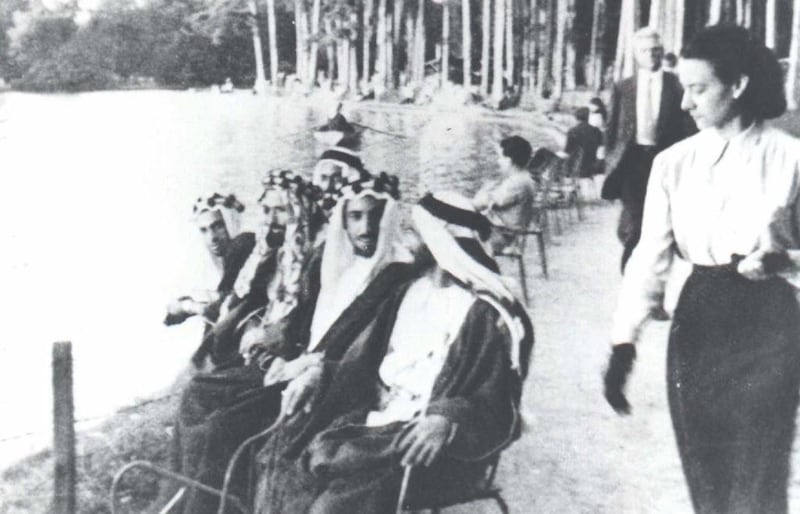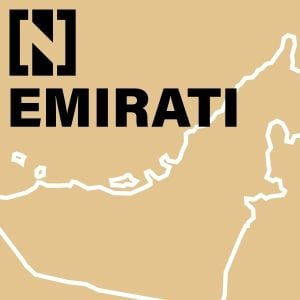Sheikh Zayed bin Sultan Al Nahyan made his first journey overseas when he was in his mid-30s and the Ruler’s Representative in the Eastern Region.
Over the decades, it is a traveller’s tale that has grown better with the telling. The small group, headed by then Ruler of Abu Dhabi, Sheikh Shakhbut bin Sultan, and including the redoubtable businessman and adviser, Khalifa bin Yousef Al Suwaidi, are said to have flown to London for the coronation, in June 1953, of the young Queen Elizabeth.
In London, the story is told, Sheikh Shakhbut was unhappy at the accommodation – or the lack of it – offered by the British and so decamped to Paris, where the party enjoyed the view from the Eiffel Tower and visited the Bois de Boulogne, before returning home via Rome.
Sheikh Zayed was to return to London on many occasions, but under very different circumstances. As Ruler of Abu Dhabi and as the first President of the UAE, he was greeted with all the pomp and circumstances owed to a head of state. In turn he welcomed and was welcomed by Queen Elizabeth, as was his son, Sheikh Khalifa bin Zayed, the current President of the UAE.
This year’s History Project magazine records the UAE’s place in the world from the moment, a week after the country’s birth on December 2, 1971, when the new flag was raised to join those of the nations of the world that fly outside the United Nations headquarters in New York.
It is a sign of the UAE’s relative youth, or at the very least of their robust constitutions, that two witnesses of those early years, Zaki Nusseibeh, adviser and translator to two presidents, and Adnan Pachachi, a former Minister of State and 92-years-young, are able to share with us their first-hand accounts of that time.
In the five decades since, the UAE has emerged as a growing voice in international affairs. The great leaders of the world have made their way to Abu Dhabi, to be welcomed with warmth and courtesy. In return, this country’s leaders are a familiar presence in the corridors of power in the White House, 10 Downing Street, the Élysée Palace and the Kremlin.
Millions daily experience the generosity of the UAE, with an unequalled reputation for international aid that has built bridges – literally in Pakistan – houses in Palestine, a state-of-the-art refugee camp in Jordan and a children’s care unit in the heart of the American capital, to name but a few.
In troubled times, the men and women of our Armed Forces have shown a dedication to international peacekeeping missions from Lebanon to Kosovo and Afghanistan, helping and protecting those in need.
This approach to world affairs is sometimes portrayed as “soft power”, a tactic of projecting influence and influencing the course of history without resorting to weapons and threats of force.
At the same time, the UAE has demonstrated that despite its relative small size, it is not afraid to stand firm when needed. In 1991, the UAE Armed Forces joined the international coalition that liberated occupied Kuwait from Saddam Hussein.
Today our soldiers are part of another coalition, this one to restore peace and stability to the people of Yemen. As they fight the Houthi rebellion, so the Red Crescent and the agencies of the UAE also work to rebuild that shattered, ancient land.
This is a conflict that comes at a price, one paid by all nations that feel the obligation to make the world a better place. Along with National Day, this week also honours those who have fallen for their country.
It is a heavy burden and one that cannot be honourably set aside. But it is one of the hallmarks of a great nation and its people that they have the resolve to carry it.






